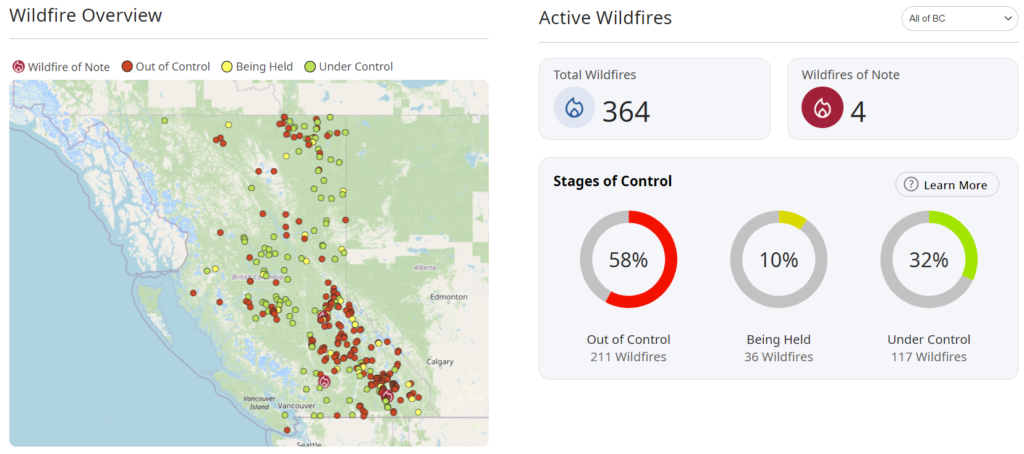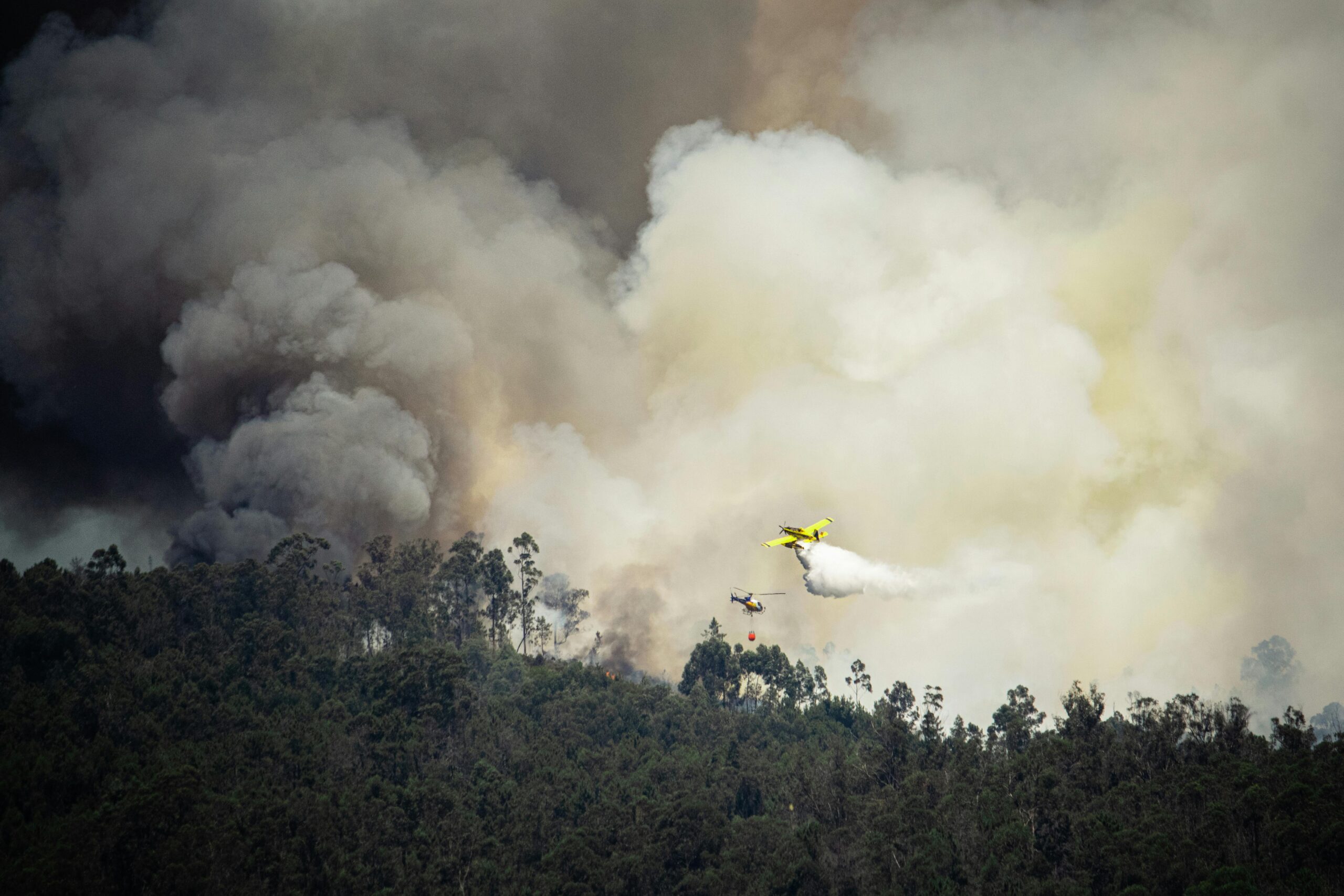British Columbia is grappling with an unprecedented wildfire crisis, with more than 300 fires currently burning across the province. A volatile weekend saw the situation escalate dramatically, forcing hundreds of people to evacuate their homes as lightning strikes ignited new fires throughout the B.C. Interior. The B.C. Wildfire Service has issued a stark warning about the potential for increased fire activity due to impending severe weather conditions.
The province is currently dealing with 364 active wildfires, with 84 new fires ignited in the last 24 hours alone. Efforts to control the situation have seen some success, with 51 fires declared out in the past day and 213 over the past week. Despite these efforts, the threat remains severe, with 17 evacuation orders and 22 alerts in place across British Columbia.

Today’s weather forecast is particularly concerning, predicting hot, dry, and windy conditions accompanied by extensive thunderstorms in the north and isolated thunder cells in the south, excluding the coast and Vancouver Island. The persistent hot and dry weather since early July has already elevated fire activity across inland regions. The expected wind conditions could exacerbate fire behavior, causing existing wildfires to spread more rapidly and new ignitions to grow quickly.
Yesterday, the province experienced over 20,000 lightning strikes, primarily in the north. Today’s forecast suggests that lightning will affect most of the province, with the highest risk in northern regions. The north is also expected to face extensive thunderstorms that could bring isolated heavy downpours, erratic winds, and potentially large hail, further complicating firefighting efforts. In the south, the hot and dry conditions will persist, maintaining the high fire risk.
Severe lightning storms pose significant challenges for wildfire response teams. Erratic winds can drastically alter fire behavior and jeopardize tree stability, while heavy downpours can make dirt roads treacherous and impact aviation resources. The safety of both the firefighting crews and the public is paramount, and the forecasted weather conditions are a critical factor in planning and deploying resources.
Several significant fires are of particular concern. The Antler Creek Fire threatens the communities of Wells and Barkerville, leading to evacuations and posing a severe risk to these historic areas. In the central interior, residents of Williams Lake faced brief evacuations when a fire erupted in an industrial area, reportedly sparked by a tree falling on power lines. While there has been no reported loss of life, structural damage has been significant.
The emergency response efforts are being bolstered by assistance from other regions and countries. Wildfire response teams and assets are being deployed from Alaska, the Yukon, Ontario, Nova Scotia, as well as international support from Australia and New Zealand. Environment Canada has issued heat warnings for much of inland B.C. and watches for severe thunderstorms, highlighting the continued risk of new fire ignitions.
In response to the wildfire activity, several parks and recreational areas have been closed. For instance, Sooke Potholes Park on Vancouver Island, a popular spot west of Victoria, has been closed due to nearby wildfire activity. While the fire in this area is currently contained and poses no immediate risk to the wider community, windy conditions have prompted the evacuation of the campground and closure of the park until further notice.
With the B.C. Wildfire Service warning of significant changes in weather that could further impact the already critical situation, the province remains on high alert. The combination of hot, dry conditions, and extensive thunderstorms poses a serious threat to firefighting efforts and public safety, necessitating ongoing vigilance and support.

